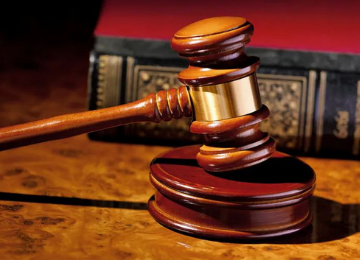 Each state sets a statutory definition of which thefts are felonies (punishable by longer sentences in prison) and which are misdemeanors (punishable by shorter sentences in jail). But in many states, the dollar amount separating felony theft from misdemeanor theft has not been increased in years, even though inflation makes the older laws more punitive each year. Virginia is one of those states.
Each state sets a statutory definition of which thefts are felonies (punishable by longer sentences in prison) and which are misdemeanors (punishable by shorter sentences in jail). But in many states, the dollar amount separating felony theft from misdemeanor theft has not been increased in years, even though inflation makes the older laws more punitive each year. Virginia is one of those states.
Did you know that before 2020, if you were fined by a court, and did not pay that fine within the short amount of time allowed, your driver’s license was automatically suspended and remained so until those fines / court costs were paid. You were then charged $143 to have your license reinstated. This law affected more than 627,000 Virginians, including over 13,000 in Prince William, Manassas and Manassas Park.
Why It’s Important
Both felonies and misdemeanors have significant consequences, but thousands of people are convicted every year of committing these kinds of low-level, non-violent offenses. They received a felony conviction that followed them for the rest of their life, dooming them to difficulty finding employment and housing and can limit their access to public housing, welfare benefits, and even voting.
Loss of a driver’s license via court cost repayment has been called a modern version of debtor’s prison. Loss of legal driving privileges impedes activities such as getting to work, getting to doctor appointments, picking up children from school, grocery shopping, and a whole host of activities that are part of the fabric of modern life in Prince William County. Many such debtors face loss of jobs. If they chose to drive anyway, they face up to 12 month in jail and thousands more in court fees/penalties that they are not able to pay.
If both cases, it is the poor who are most impacted by these two laws – coupled by a lack of representation in court. People were additionally being punished for being poor.
Go deeper
Prior to this, if a person stole anything whose vale was more than $250, it was classified as a felony as opposed to a misdemeanor. Both felonies and misdemeanors have significant consequences, but thousands of people are convicted every year of committing these kinds of low-level, non-violent offenses. They received a felony conviction that followed them for the rest of their life, dooming them to difficulty finding employment and housing and can limit their access to public housing, welfare benefits, and even voting.
The threshold for Felony Larceny (theft) in Virginia was $250 – among the lowest in the nation. In 2020, VOICE led the fight to raise the level to $1000. The goal to continue to work to increase the threshold to match efforts in other states, such as Texas where the threshold is $2,500.
After a two-year advocacy effort by VOICE and the Legal aid Justice Center, in February 2020, the bill was signed by the Governor which, in addition to ending suspensions, the bill also stipulated the Department of Motor Vehicles can’t charge its $145 fee when drivers ask to reinstate licenses that were suspended because they didn’t pay fines or court costs.
Virginia State Sen. Bill Stanley, R-Franklin County, who sponsored the bill said: “This comes from my legal practice; I was seeing a heck of a lot of driving while suspended cases from not paying fines,” Stanley said. “I’ve had people who mailed in a payment, it’s received at the court two days late and — license suspended. …These are poor people, they need to get to work and fines can build up to thousands of dollars.”
Del. Jennifer Carroll Foy, D-2nd, who represents parts of Prince William and Stafford counties, called the measure a “game changer.” As an attorney and public defender, Foy said she has represented several clients who have lost their licenses because they can’t pay court fines and then end up re-arrested for driving anyway. For most, driving is a necessity to get to work or take their kids to school or doctor’s appointments, Foy said. Those arrested for driving without a license face up to 12 months in jail. Foy said she has had clients with fines as low as $200 that they simply cannot afford to pay. Those with more complicated cases, necessitating multiple court hearings, can have fines in the thousands. Either way, they are prohibitive for her low-income clients, Foy said. “It’s hard because a lot of people don’t have the life experience to understand there are some individuals out there who just can’t afford $200 [in court fines],” she said. (July 27, 2019 edition of the Prince William Times)
The DMV reinstated licenses for more than 50,000 Virginians since then. But several hundred thousand drivers’ licenses had been suspended for unpaid fines and costs in Virginia.
There are more laws that unduly burden the poor. Want to help? Contact Terry Danner of the parish VOICE Ministry.